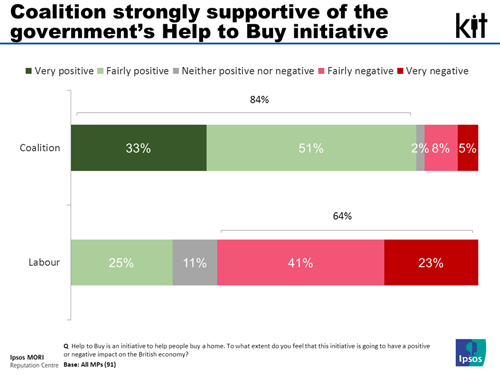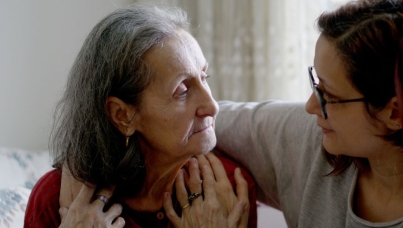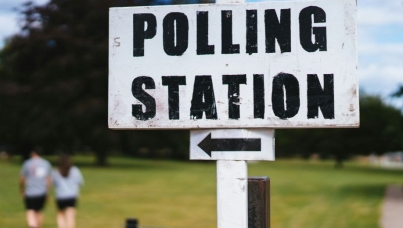Help to Buy: One year on
 A couple of years ago David Cameron said that “All roads lead back to housing”, echoing Sir Bob Kerslake’s remark that, “Whichever way you look at the [Government’s] agenda, housing is a key part”. The ‘housing crisis’ matters economically, socially and politically, and because of this, what the public and politicians think matters too.
A couple of years ago David Cameron said that “All roads lead back to housing”, echoing Sir Bob Kerslake’s remark that, “Whichever way you look at the [Government’s] agenda, housing is a key part”. The ‘housing crisis’ matters economically, socially and politically, and because of this, what the public and politicians think matters too.
Although critics would probably point to the controversial ‘bedroom tax’, ‘Help to Buy’ is quite possibly the Coalition Government’s signature housing policy. It addresses Britons’ steadfast desire to buy their homes plus worries about deposit-raising – consistently perceived to be one of the key barriers to buying property according to our regular surveys for the Halifax.
But the policy didn’t poll especially well after last autumn’s party conferences and has been associated with house price rises. Heightened sensitivity about these is one of the key reasons why there has been a rise in the salience of housing (especially in London), and critics have made a direct link between the policy and a potential property bubble.
But what do politicians think? As they seek to mobilise the troops at May’s important elections and, beyond that, in the run up to the 2015 election, does support fall out along party lines or are things more complex? Our twice-yearly survey of MPs offered an opportunity to find out.
In the winter of 2013 Ipsos conducted a poll of MPs which asked whether they felt the Help to Buy initiative will have a positive or negative impact on the British economy. Overall, 58% of MPs surveyed said the initiative is going make a positive contribution to the economy, compared to 36% who said that it won’t. When looking at support for the initiative between the Coalition and Labour, clear party lines emerge. Among the Coalition party MPs, almost nine in ten (84%) feel Help to Buy will have a positive impact, which will come as good news to the Prime Minister and the Chancellor. This compared to two thirds (64%) of Labour MPs who feel it will negatively impact the economy.

The economic importance of housing is cited as a main reason for having a positive outlook on the policy by a majority (57%), while other key arguments in favour of the policy include helping people to get onto the property ladder (40%) and it being good for the construction industry (31%).
The National Audit Office stated recently the scheme is helping access to mortgages and the Government says that over 80% of the Help to Buy loans have been to first time buyers, but there is, as yet, no definitive assessment of the economic impacts of the policy.
Critics of the policy are concerned about the possibility that the initiative is creating a housing bubble (71%), and fuel what they consider to be an unhealthy market, pushing already high house prices further up (50%). Prices are certainly rising and, for the 45% of critical MPs who feel that the not enough houses are being built, a recent report by Hometrack highlighted demand continuing to outstrip supply.
With the election a year out and Conservative MPs looking for success stories to sell to the electorate, the Coalition’s policy looks set to be tagged on to narrative around the current bounce we are seeing in economic optimism (contributing to the highest ratings for a Chancellor of the Exchequer since Gordon Brown in 2006).
The Prime Minister is already hailing Help to Buy’s success at getting more people onto the property ladder and The Chancellor George Osborne has extended the scheme by several years to 2020 indicating further confidence by the government in what could be a flagship policy for the Conservatives going into the 2015 election.
If the Government is able to build a narrative of success and aspiration around Help to Buy then it is possible the Conservatives will have an attractive housing proposition to sell to the electorate. This will throw down a challenge to the Labour party to come up with something equally compelling. But the possible counter-narrative is one of reckless price inflation.
MPs’ perspectives on this key policy will be important. They are likely to reflect, but also shape, voters’ opinions.



